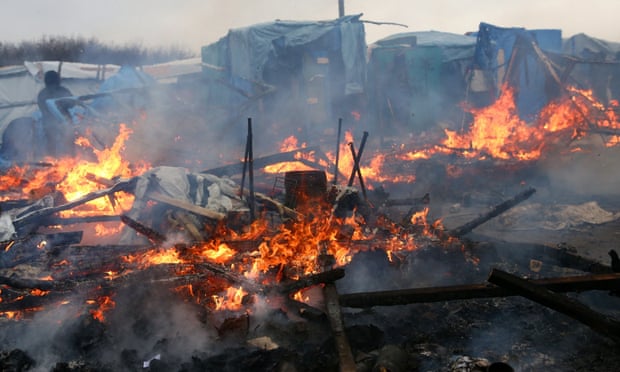Athens asks
EU for €480m in emergency funds as Brussels prepares for two key summits and
aid agencies condemn ‘unconscionable’ response to influx.
With the EU entering what many see as a
make-or-break phase in tackling the crisis, the bloc’s most senior leaders
called for urgent action to support Greece as at least 8,500 refugees and
migrants remained trapped without permanent shelter on the country’s closed
northern border with Macedonia.
Frontex, the EU’s border control agency,
said 30 times as many migrants entered Europe in January and February as in the
same two months of last year, and the UN’s refugee agency announced that
131,724 people had crossed the Mediterranean – the vast majority of them
reaching Greece – so far in 2016, almost as many as made the journey in the
first six months of 2015.
The UNHCR said the continent stood “on the
cusp of a largely self-induced humanitarian crisis”, with governments “not
working together despite agreements … and country after country imposing new
border restrictions”.
In a scathing statement, Human Rights Watch
condemned the EU’s “utter failure to respond collectively and compassionately
to refugee flows”.
Germany’s chancellor, Angela Merkel, said
Europe must deal decisively with “the difficult situation” in Greece, while the
European council president, Donald Tusk, demanded support for Athens. Readiness
to stand by Greece was “a test of our Europeanness”, Tusk said.
“The number of migrants arriving in Greece
is on the rise not because they want to make Greece their home, but because
they are hoping they will move on from Greece to other European countries,” he
said as he embarked on a round of shuttle diplomacy before an emergency meeting
with Turkey on Monday and a summit of EU leaders on 18 March.
Facing an average of 2,000-3,000 new refugee
arrivals from Turkey each day, Greece said on Tuesday that the influx
threatened to overwhelm its already overstretched resources and asked the EU
for €480m (£375m) in emergency funds to help it shelter up to 100,000 refugees
if needed.
“We cannot bear the strain of all the
refugees coming here,” said Olga Gerovassili, a spokeswoman for the Greek
government. “These are temporary measures, there needs to be a permanent
solution on where refugees will be relocated.”
Πηγή: The
Guardian




Δεν υπάρχουν σχόλια:
Δημοσίευση σχολίου